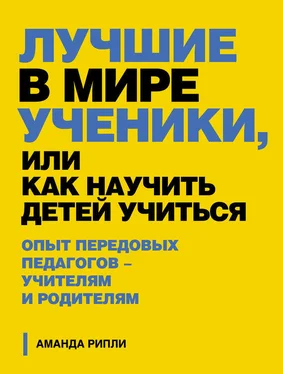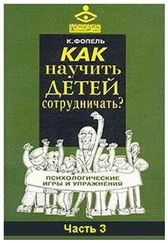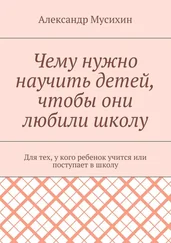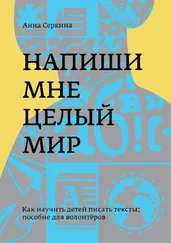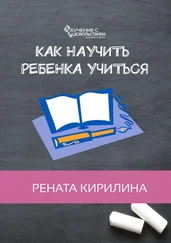Aud, Susan, William Hussar, Grace Kena, Kevin Bianco, Lauren Frohlich, Jana Kemp, and Kim Tahan. The Condition of Education 2011 (NCES 2011-033). U.S. Department of Education, National Center for Education Statistics. Washington, DC: U.S. Government Printing Office, 2011.
Auguste, Byron, Paul Kihn, and Matt Miller. Closing the Talent Gap: Attracting and Retaining Top-Third Graduates to Careers in Teaching. McKinsey & Company, September, 2010.
Barber, Michael, and Mona Mourshed. How the World’s Best-Performing School Systems Come Out on Top.McKinsey & Company, September 2007.
Bernanke, Ben. «The Level and Distribution of Economic Well-Being». Speech before the Greater Omaha Chamber of Commerce, Omaha, NE, February 6, 2007.
«Bildungsstudie – Durchweg schlechte Noten». FOCUS, December 3, 2001. Translation by Theresa Buchstätter.
Bill & Melinda Gates Foundation. Learning about Teaching: Initial Findings from the Measures of Effective Teaching Project. Measures of Effective Teaching Project, December, 2010.
Boe, Erling, Henry May, and Robert Boruch. Student Task Persistence in the Third International Mathematics and Science Study: A Major Source of Achievement Differences at the National, Classroom, and Student Levels. Philadelphia: Center for Research and Evaluation in Social Policy, 2002.
Boe, Erling, and Sujie Shin. «Is the United States Really Losing the International Horse Race in Academic Achievement?» Phi Delta Kappan, 86, no. 9 (2005): 688–695.
Borgonovi, Francesca, and Guillermo Montt. «Parental Involvement in Selected PISA Countries and Economies». OECD Working Papers No. 73. OECD Publishing, Paris, 2012.
Boser, Ulrich, and Lindsay Rosenthal. Do Schools Challenge Our Students? What Student Surveys Tell Us about the State of Education in the United States. Washington: Center for American Progress, July 10, 2012.
Boser, Ulrich. Return on Educational Investment: A district-by-district evaluation of U.S. educational productivity.Washington: Center for American Progress, January 2011.
Bowles, Samuel, and Herbert Gintis. Schooling in Capitalist America: Educational Reform and the Contradictions of Economic Life.New York: Basic Books, 1976.
Bracey, Gerald W. «Another Nation at Risk: German Students Scores in Academic Tests». Phi Delta Kappan, 84, no. 3, November 1, 2002.
Bronson, Po, and Ashley Merryman. NurtureShock: New Thinking about Children. New York: Hachette Book Group, 2009.
Bureau of the Census. State & County Quick Facts, Sallisaw, Oklahoma.Washington, DC: Bureau of the Census. http://quickfacts.census.gov/qfd/states/40/4065000.html. Accessed 2012.
Bureau of Labor Statistics. «The Employment Situation: December, 2011». Bureau of Labor Statistics press release, January 6, 2012.
Catholic Information Agency».Gniezno: Nationwide Launch of the School Year». September 1, 1999. Translation by Justine Jablonska.
Cavanagh, Sean. «Out-of-School Classes Provide Edge». Education Week, April 22, 2009.
Center for Research in Mathematics and Science Education. Breaking the Cycle: An International Comparison of U.S. Mathematics Teacher Preparation. East Lansing: Michigan State University, 2010.
Center on Education Policy, George Washington University. State High School Exit Exams: A Policy in Transition.Washington, DC: Center on Education Policy, 2012.
Chae, S., J.-H. Hong, and T.J. Lee. «Anatomy of the Rank Structure of Korean Universities: Toward a Design of Integrated Policies for Education Reform in Korea». AP-EPRI/ KEDI Publications, 2005.
Chao, Ruth. «Beyond Parental Control and Authoritarian Parenting Style: Understanding Chinese Parenting through the Cultural Notion of Training». Child Development 65(1994): 1111–1119.
Chao, Ruth. «Chinese and European American Mothers’ Beliefs about the Role of Parenting in Children’s School Success». Journal of Cross-Cultural Psychology 27, no. 4 (July 1996): 403–423.
Choi, Álvaro, Jorge Calero, and Josep-Oriol Escardíbul. Hell to Touch the Sky: Private Tutoring and Academic Achievement in Korea.Barcelona: Barcelona Institute of Economics, 2011.
College Board, 2011 College-Bound Seniors: Total Group Profile Report, 2011.
Collins, Jim. Good to Great: Why Some Companies Make the Leap. . and Others Don’t. New York: HarperCollins, 2001.
Conn, Steven. «In College Classrooms, the Problem Is High School Athletics». The Chronicle of Higher Education, April 15, 2012.
Coolahan, John, Paula Santiago, Rowena Phair, and Akira Ninomiya. Attracting, Developing and Retaining Effective Teachers: Country Note – Korea.Paris: OECD Publishing, 2004.
«Current Expenditure per Pupil in Average Daily Attendance in Public Elementary and Secondary Schools, by State or Jurisdiction, Selected Years, 1959-60 through 2007–08». National Center for Education Statistics. Accessed 2012.
Czajkowska, Agnieszka. «Kids Revolt». Gazeta Wyborcza, September 19, 2007. Translation by Mateusz Kornacki.
Daily Oklahoman».Past Out: School Officials Should Keep Moving Forward». July 8, 2012.
Darling-Hammond, Linda. The Flat World and Education.New York: Teachers College Press, 2010.
Davidson, Adam. «Making It in America». The Atlantic, January/Feburary 2012.
Davies, Norman, and Roger Moorhouse. Microcosm: Portrait of a Central European City. London: Jonathan Cape, 2011.
Denhart, Matthew, and Christopher Matgouranis. Oklahoma Higher Education: Challenging the Conventional Wisdom.Oklahoma City: Oklahoma Council of Public Affairs, 2011.
Dervarics, Chuck, and Eileen O’Brien. Back to School: How Parent Involvement Affects Student Achievement.Alexandria: The Center for Public Education, 2011.
District of Columbia Department of Employment Services. «District of Columbia Strategic Workforce Investment Plan: For the Period of July 1, 2009 – June 30, 2010». July 10, 2009.
Duckworth, Angela L., and Martin E. P. Seligman. «Self-Discipline Outdoes IQ in Predicting Academic Performance of Adolescents». Psychological Science16, no. 12 (2005): 939–944.
Dweck, Carol S. «Caution – Praise Can Be Dangerous». American Educator, Spring 1999.
The Economist».How to Be Top». October 18, 2007.
Education Trust. «Not Good Enough: A Content Analysis of Teacher Licensing Examinations». Thinking K-163, no. 1 (Spring 1999).
Eger, Andrea. «www.school.com». Tulsa World,August 15, 2011.
Fenty, Adrian, Joseph Walsh, and Bill Dean. «District of Columbia Strategic Workforce Investment Plan». 2010.
Finnish National Board of Education. Performance Indicator for Initial Vocational Training in Finland 2011. Helsinki: Finnish National Board of Education, 2011.
Fleischman, Howard L., Paul J. Hopstock, Marisa P. Pelczar, and Brooke E. Shelley. Highlights From PISA 2009: Performance of U.S. 15-Year-Old Students in Reading, Mathematics, and Science Literacy in an International Context (NCES 2011-004). U.S. Department of Education, National Center for Education Statistics. Washington, DC: U.S. Government Printing Office, 2010.
Friedman, Thomas L. «How about Better Parents?» The New York Times,November 19, 2011.
Gamerman, Ellen. «What Makes Finnish Kids So Smart?» The Wall Street Journal, February 29, 2008.
Glenn, David. «Writing Assignments are Scarce for Students in Two Majors at Texas Colleges». The Chronicle of Higher Education, Jan. 18, 2011.
Gove, Michael. «The Benchmark for Excellence». The Independent, Jan. 6, 2011.
Greenberg, Julie, Laura Pomerance, and Kate Walsh. Student Teaching in the United States.Washington, D.C.: National Council on Teacher Quality, 2011.
Greene, Jay P., and Josh B. McGee. «When the Best Is Mediocre». Education Next 12, no. 1 (2012): 35–40.
Greene, Wayne. «Graduation Testing Bill Advances». Tulsa World,May 18, 2012.
Читать дальше
Конец ознакомительного отрывка
Купить книгу
